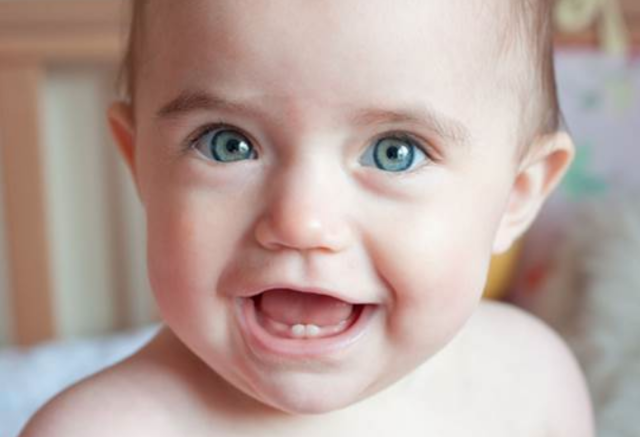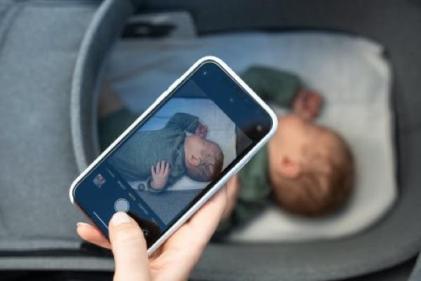It seems like only yesterday our little ones came into the world, and all of a sudden their very first teeth are making an appearance.
So of course we mums want to know the best way to gently take care of them, ensuring they’re kept clean, strong and healthy.
While all kids are different, generally your baby’s first tooth will appear at around six months, and by two-and-a-half years old they should have a full set of 20 milk teeth. Here’s all the advice you need to look after them:
How often do I need to clean them?
Start the habit of brushing as early as possible, so as soon as your baby’s first tooth bud appears, gently brush it twice a day, one in the morning and once in the evening.

What will I use, particularly for younger babies?
To begin with, you might prefer to clean your baby’s teeth using a piece of clean muslin or gauze wrapped around your finger. This will allow you greater control to be as gentle as possible, particularly if your baby is in the throes of teething.
However, there are special baby toothbrushes on the market, so choose one with soft bristles and a small head. As your baby gets older, a toothbrush is definitely the more effective option, as the bristles can get into the spaces between the teeth.
How do I clean the teeth?
Clean the teeth gently and carefully, with small, gentle circular movements. Remember, if your baby is teething their gums will be tender and sore. Hygiene is so important, so wash the brush after every use and replace it every three months or so, or when the bristles start to spread out.

Will I need toothpaste?
Yes, pop a small smear of toothpaste on the cloth or brush before cleaning. It’s important to note that babies and toddlers aren’t old enough to use your regular family toothpaste – so choose one especially for babies with a lower amount of fluoride. It’s recommended that under-threes use a lower-fluoride toothpaste, though it should still contain at least 1,000ppm (parts per million). If you’re unsure, call your dentist for advice.
It’s a good idea also to use toothpaste that tastes like toothpaste – fruity paste might encourage your child to swallow it. With this in mind, encourage your baby to spit after every clean. They probably won’t get the hang of it for a while, but the key is to introduce this habit as early as possible.

When should I take my baby to the dentist?
If possible, a good tip is to begin by bringing your baby along to your own dental check-ups. Getting them used to the dental surgery will stand them in good stead when it’s time for their own appointment. The key is to normalise the dentist, so they don’t associate it with fear and anxiety.
The usual time to take your baby to the dentist is about six months after the eruption of their first tooth, but if you have any worries prior to that, call or pop into your dental clinic for advice.





